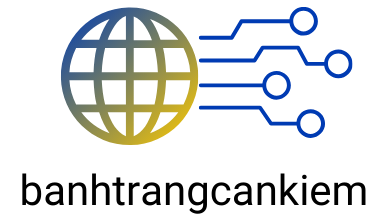
As a professional who’s worked with both industrial engineers and computer scientists, I’ve noticed these two fields often get mixed up by students choosing their career paths. While both disciplines focus on solving complex problems, they approach challenges from distinctly different angles.
I’ll break down the key differences between industrial engineering and computer science to help you make an informed decision about your future. Industrial engineering primarily deals with optimizing physical processes and systems in manufacturing and service industries. Meanwhile, computer science focuses on computational theory, software development, and digital solutions. Understanding these unique aspects will help you align your interests with the right career choice.
- Industrial Engineering vs Computer Science focuses on optimizing physical processes and systems in manufacturing, while Computer Science deals with computational theory and software development
- Industrial engineers earn a median salary of $88,950 with 11% job growth projected (2022-2032), while computer scientists earn $131,490 with a higher 25% growth rate
- IE curriculum emphasizes manufacturing processes, quality control, and operations research, while CS concentrates on programming, algorithms, and software development
- Industrial engineers typically work in manufacturing facilities and physical workspace environments, while computer scientists primarily work in digital/remote settings
- Computer Science offers more remote work opportunities and higher earning potential, but Industrial Engineering provides broader exposure to business operations and physical systems
Industrial Engineering vs Computer Science
Industrial Engineering vs Computer Science combines mathematical methods with engineering principles to enhance productivity in manufacturing systems through process optimization. This discipline integrates human factors, technology and resources to improve operational efficiency.
Key Principles and Methodologies
Industrial engineering relies on five core methodologies:
- Process Analysis: Mapping workflows to identify bottlenecks and inefficiencies in production systems
- Quality Control: Implementing statistical methods to monitor product specifications and reduce defects
- Ergonomics: Designing workstations and procedures that optimize human performance and safety
- Operations Research: Applying mathematical modeling to solve complex logistics and scheduling problems
- Systems Engineering: Integrating multiple components into cohesive production environments
The application of these principles involves specific tools:
| Methodology | Key Tools |
|---|---|
| Process Analysis | Value Stream Mapping, Time Studies |
| Quality Control | Six Sigma, Statistical Process Control |
| Ergonomics | Motion Analysis, Workplace Assessment |
| Operations Research | Linear Programming, Simulation |
| Systems Engineering | CAD Software, Project Management |
Career Paths in Industrial Engineering
Industrial Engineering vs Computer Science pursue diverse roles across multiple sectors:
- Manufacturing Engineer: Optimizes production lines and implements automation solutions
- Quality Engineer: Develops testing procedures and maintains quality standards
- Supply Chain Manager: Coordinates logistics networks and inventory systems
- Process Improvement Specialist: Analyzes workflows to reduce waste and increase efficiency
- Operations Manager: Oversees facility operations and production scheduling
- Health Systems Engineer: Streamlines healthcare delivery and patient flow
- Logistics Analyst: Plans distribution networks and transportation systems
- Manufacturing facilities
- Healthcare institutions
- Transportation hubs
- Consulting firms
- Distribution centers
- Technology companies
- Government agencies
Understanding Computer Science
Industrial Engineering vs Computer Science explores the theoretical foundations of computation and information processing. This field integrates mathematical principles with practical applications in software development.
Core Programming Concepts
Computer science revolves around five fundamental programming concepts:
- Data Structures: Arrays, linked lists, trees, graphs for organizing information
- Algorithms: Sorting methods, search techniques, optimization procedures
- Object-Oriented Programming: Classes, inheritance, polymorphism, encapsulation
- Computer Architecture: Memory management, processor operations, system design
- Operating Systems: Process scheduling, file systems, memory allocation
Programming languages serve as tools to implement these concepts:
- Low-level Languages: Assembly, Machine code
- High-level Languages: Python, Java, C++
- Scripting Languages: JavaScript, PHP, Ruby
Software Development Focus
Software development in computer science encompasses three primary areas:
- Application Development
- Web applications
- Mobile apps
- Desktop software
- Enterprise systems
- System Programming
- Operating system components
- Device drivers
- Embedded systems
- Network protocols
- Development Methodologies
- Agile frameworks
- Test-driven development
- Continuous integration
- Version control systems
| Sector | Primary Focus | Key Technologies |
|---|---|---|
| Web | Front-end/Back-end | HTML/CSS, Node.js |
| Mobile | Native/Cross-platform | Swift, Kotlin |
| Enterprise | Business Solutions | Java, .NET |
| Cloud | Distributed Systems | AWS, Azure |
Main Differences Between the Fields
Industrial Engineering vs Computer Science implement distinct methodologies to address organizational challenges. These fields diverge significantly in their core approaches objectives and required skill sets.
Problem-Solving Approaches
Industrial engineers tackle physical process optimization through:
- Analyzing workflow bottlenecks in manufacturing lines
- Implementing lean manufacturing principles in production systems
- Designing ergonomic workstations for employee efficiency
- Creating supply chain solutions for material flow
- Developing quality control systems for product consistency
Computer scientists focus on computational solutions through:
- Writing algorithms to solve complex data processing tasks
- Debugging software code to identify logical errors
- Creating software architectures for scalable applications
- Optimizing database queries for faster data retrieval
- Developing automated testing frameworks for code validation
Technical Skill Requirements
Industrial engineering competencies include:
- Statistical analysis tools (Minitab SAS JMP)
- Computer-aided design software (AutoCAD SolidWorks)
- Process simulation programs (Arena FlexSim)
- Project management platforms (MS Project Primavera)
- Quality management systems (Six Sigma ISO 9001)
- Programming languages (Java Python C++)
- Development environments (Visual Studio Eclipse)
- Version control systems (Git SVN)
- Database management (SQL NoSQL)
- Operating systems (Linux Unix Windows)
| Aspect | Industrial Engineering | Computer Science |
|---|---|---|
| Primary Tools | CAD & Simulation Software | Programming IDEs |
| Core Focus | Process Optimization | Software Development |
| Work Environment | Factory Floor & Office | Digital Workspace |
| Project Duration | 3-12 months | 2-6 months |
| Team Size | 5-15 members | 3-8 members |
Educational Requirements and Curriculum
Educational pathways in Industrial Engineering vs Computer Science feature distinct core coursework tailored to their respective fields, with both requiring strong foundations in mathematics and analytical thinking.
Industrial Engineering Coursework
Industrial engineering programs emphasize courses in optimization techniques and systems analysis. Core requirements include:
- Mathematics courses: Calculus I-III, Linear Algebra, Differential Equations
- Engineering fundamentals: Statics, Dynamics, Thermodynamics
- Industrial-specific courses:
- Manufacturing Processes
- Production Planning
- Quality Control Systems
- Ergonomics
- Operations Research
- Management courses:
- Project Management
- Supply Chain Operations
- Engineering Economics
- Laboratory components:
- Process Simulation
- CAD/CAM Systems
- Materials Testing
- Mathematics requirements:
- Discrete Mathematics
- Probability & Statistics
- Linear Algebra
- Core computer science courses:
- Data Structures & Algorithms
- Computer Architecture
- Operating Systems
- Database Management
- Software Engineering
- Programming fundamentals:
- Object-Oriented Programming
- Web Development
- Mobile Applications
- Advanced topics:
- Artificial Intelligence
- Machine Learning
- Computer Networks
- Cybersecurity
| Degree Component | Industrial Engineering | Computer Science |
|---|---|---|
| Program Duration | 4 years | 4 years |
| Math Credits | 18-24 credits | 15-21 credits |
| Lab Hours | 200-300 hours | 150-250 hours |
| Required GPA | 2.5-3.0 | 2.5-3.0 |
Career Opportunities and Salary Outlook
The job market offers diverse opportunities for both industrial engineers and computer scientists, with distinct career trajectories and compensation structures. These fields demonstrate strong employment prospects across various sectors, from manufacturing to technology companies.
Industry Demand
Industrial engineers command median salaries of $88,950, with positions available in manufacturing ($92,660), professional services ($85,410) and healthcare ($84,850). The U.S. Bureau of Labor Statistics reports 292,000 industrial engineering positions in 2021, concentrated in industries like aerospace, automotive and consumer goods. Computer scientists earn median salaries of $131,490, with software companies ($145,320), research firms ($140,900) and financial services ($137,780) offering the highest compensation. The field currently employs 1.6 million professionals across software development, cybersecurity and cloud computing roles.
| Position | Median Salary | Top Industry Salary |
|---|---|---|
| Industrial Engineer | $88,950 | $92,660 (Manufacturing) |
| Computer Scientist | $131,490 | $145,320 (Software) |
Growth Potential
Computer science positions project a 25% growth rate from 2022-2032, adding approximately 400,000 new jobs driven by artificial intelligence, cloud computing and cybersecurity expansion. Industrial engineering anticipates 11% growth in the same period, creating 32,100 new positions through automation integration and supply chain optimization. Career advancement paths for industrial engineers lead to roles like Operations Director ($125,000) or Plant Manager ($110,000), while computer scientists progress to Software Architect ($150,000) or Chief Technology Officer ($180,000) positions.
| Field | Projected Growth (2022-2032) | New Jobs Created |
|---|---|---|
| Computer Science | 25% | 400,000 |
| Industrial Engineering | 11% | 32,100 |
Making the Right Choice Between IE and CS
The decision between Industrial Engineering (IE) and Computer Science (CS) depends on specific career aspirations technical interests. These factors shape the alignment between personal goals and professional opportunities in each field.
Personal Interest Factors
Industrial Engineering appeals to individuals who enjoy:
- Analyzing physical processes in manufacturing environments
- Implementing efficiency improvements across entire systems
- Working with diverse teams including operators managers engineers
- Combining technical skills with business strategy
- Solving problems involving human factors ergonomics
Computer Science attracts those who prefer:
- Creating software solutions through programming
- Working primarily with digital systems algorithms
- Exploring theoretical computational concepts
- Building applications from scratch
- Solving abstract mathematical problems
Future Industry Trends
Industrial Engineering growth areas include:
- Smart manufacturing integration
- Sustainable production systems
- Healthcare process optimization
- Supply chain automation
- Data-driven decision systems
- Artificial Intelligence development
- Cybersecurity applications
- Cloud computing architecture
- Quantum computing research
- Edge computing implementation
| Industry Trends 2024-2034 | Industrial Engineering | Computer Science |
|---|---|---|
| Job Growth Rate | 11% | 25% |
| New Technologies Impact | Moderate | High |
| Remote Work Opportunities | Limited | Extensive |
| Industry Disruption Level | Medium | High |
Creating Exciting Opportunities
Both industrial engineering and computer science offer rewarding career paths with strong growth potential and competitive salaries. I’ve found that the choice between these fields ultimately depends on your personal interests and career goals.
If you’re drawn to optimizing physical processes working with diverse teams and improving efficiency in real-world settings industrial engineering might be your calling. But if you’re passionate about coding theoretical computer concepts and developing software solutions computer science could be the better fit.
I believe both fields will continue to evolve with emerging technologies creating exciting opportunities for innovation and professional growth. The key is to align your strengths and interests with the field that resonates most with your vision for the future.








